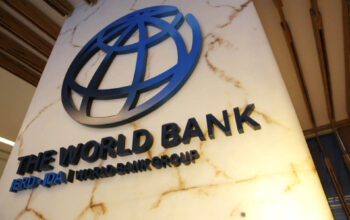By Staff Reporter
KARACHI: Rupee tumbled about 9.6 percent to a record low of 255.43 against the dollar on Thursday as the cash-strapped government abandoned controls on its currency exchange rate to revive an International Monetary Fund (IMF) bailout programme.
The local currency lost 24.54 rupees versus the greenback at the interbank market, marking the biggest one-day loss — both in absolute and percentage terms — ever recorded since the new exchange rate system was implemented in 1999.
The drop comes a day after foreign exchange companies removed a cap on the exchange rate, a key demand of the IMF as part of a bail-out programme agreed in 2018.
The rupee fell to 262 to the dollar in the open market, a decline of 7.81 percent after losing 1.2 percent the day before, according to the rates provided by the Exchange Companies Association of Pakistan (ECAP).
“The much-awaited rupee adjustment has been done today by allowing banks to quote rates based on market demand-supply. This was the case till September 2022 but later bank rate was kept in a narrow band that gave rise to the black market,” said Mohammed Sohail, the CEO of Topline Securities.
“Now black market rate will come closer to the bank rate. This will help in increasing exports and inward remittances through the banking channel. This may also help in reviving the delayed 9th review with the IMF and inflows from friendly nations,” Sohail added.
In the near term, Sohail said, the depreciation would cause inflation, but it would also contribute to lowering imports. “Now do more to bring back the IMF immediately. Try to eliminate the current account deficit.”
A market-driven currency rate is one of the key requirements the multilateral lender has set for restarting the stalled bailout programme. Attempts by Finance Minister Ishaq Dar to defend the rupee since his appointment in September, including reported currency market interventions, had run counter to the IMF’s advice.
Pakistan secured a $6 billion IMF bailout in 2019. It was topped up with another $1 billion last year to help the country following devastating floods, but the IMF then suspended disbursements in November due to the country’s failure to make more progress on fiscal consolidation.
“Pakistan is showing its willingness and finally conceding to IMF demands to secure funds after a long period of reluctance,” said Naveed Vakil, chief operating officer at AKD Securities Pvt Ltd.
“The IMF is firmly positioned in Pakistan maintaining a market-based exchange rate and today’s move has given markets the confidence that officials will now complete the remaining required conditions to continue the IMF program.”
A brokerage said the central bank had resisted calls to allow market forces to decide the exchange rate for months.
“The SBP’s reserves experienced a steep decline from $8 billion in September to $4.6 billion as of January 13, which increased the disparity between interbank and open market rates and resulted in a surge of black market rates because of a scarcity of supply,” said Topline Securities in a note.
Copyright © 2021 Independent Pakistan | All rights reserved




